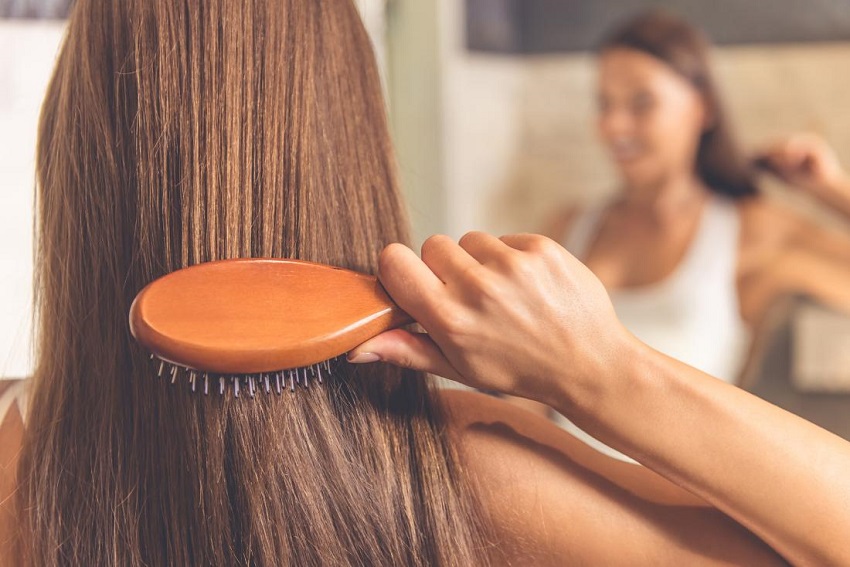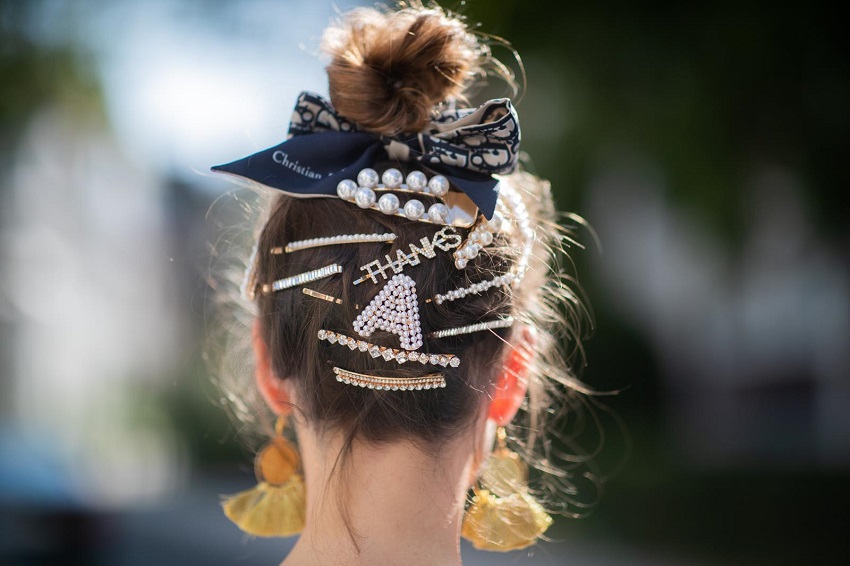
25 Jul Can I Make My Hair Healthy? Tips and Tricks for Luscious Locks
Having healthy, lustrous hair is a dream for many of us. Our hair reflects our overall health and plays a significant role in boosting our self-confidence. However, with various environmental factors and lifestyle choices, achieving and maintaining healthy hair can be a challenge. In this article, we will explore practical tips and tricks that can help you achieve the hair of your dreams. The article is submitted by improvelifehere.com
Understanding the Basics: Hair Structure and Growth
Before we delve into hair care tips, let’s understand the basics of hair structure and growth. Hair is composed of a protein called keratin, which forms the hair shaft. The hair follicle beneath the scalp is responsible for hair growth. Each hair strand undergoes a cycle of growth, rest, and shedding.
The Role of Nutrition in Hair Health
A balanced and nutritious diet is essential for promoting hair health. Nutrients like vitamins A, C, D, E, biotin, iron, and protein are crucial for hair growth and strength. Incorporate foods such as eggs, nuts, leafy greens, and fruits into your diet to nourish your hair from within.
Washing Your Hair the Right Way
Washing your hair regularly is vital, but overwashing can strip the hair of its natural oils, leading to dryness. Use a sulfate-free shampoo and a nourishing conditioner suited for your hair type. Also, avoid using hot water as it can damage the hair follicles and lead to breakage. Discover how to get healthy hair.
The Importance of Regular Trims
Trimming your hair regularly helps get rid of split ends and promotes healthier growth. Aim to get a trim every 6 to 8 weeks to maintain the overall health and appearance of your hair.
Keep Your Hair Moisturized
Moisturizing your hair is essential to combat dryness and frizz. Use a leave-in conditioner or natural oils like coconut or argan oil to keep your locks hydrated and smooth.
Protecting Your Hair from Damage
Shielding Your Hair from Heat
Excessive use of heat styling tools can lead to hair damage. If you must use them, apply a heat protectant spray beforehand and use the lowest heat setting possible. Alternatively, try air-drying your hair to minimize heat exposure.
Be Gentle with Wet Hair
Wet hair is more susceptible to damage, so handle it with care. Avoid vigorous towel-drying and use a microfiber towel or an old t-shirt to blot excess water gently.
Incorporating Healthy Hair Habits
Brushing Your Hair
Use a wide-tooth comb or a brush with flexible bristles to detangle your hair gently. Start from the ends and work your way up to prevent breakage.
Choosing the Right Hair Accessories
Avoid using tight hair ties and accessories that can cause strain on your hair. Opt for scrunchies or hairpins made from soft materials to minimize damage.
Massaging Your Scalp
Regular scalp massages improve blood circulation and stimulate hair growth. Use your fingertips to massage your scalp in circular motions for a few minutes each day.
Myth Busters: Hair Care Do’s and Don’ts
Cutting Your Hair Makes It Grow Faster
Contrary to popular belief, cutting your hair does not affect its growth rate. Trimming only helps maintain healthy hair by preventing split ends.
Shampooing Every Day is a Must
Frequent shampooing can strip the hair of its natural oils, causing it to become dry and brittle. Aim to shampoo every 2 to 3 days or as needed.
Conclusion
Achieving and maintaining healthy hair requires a combination of proper hair care, a nutritious diet, and adopting healthy habits. Be patient and consistent with your hair care routine, and remember that everyone’s hair is unique. Embrace your natural hair type and texture, and with time and care, you’ll have luscious locks that turn heads.
FAQs
Q1: Can certain medical conditions affect hair health?
Yes, certain medical conditions like thyroid disorders or nutritional deficiencies can impact hair health. If you notice significant hair loss or changes in your hair’s texture, it’s best to consult a healthcare professional.
Q2: Are home remedies effective for improving hair health?
Some home remedies can be beneficial, such as applying aloe vera gel or olive oil to your hair. However, results may vary, and it’s essential to use evidence-based practices for optimal hair care.
Q3: Does stress affect hair health?
Stress can contribute to hair loss and other hair-related issues. Engaging in stress-reducing activities like yoga or meditation can be helpful for maintaining healthy hair.
Q4: Can styling products cause long-term damage to hair?
Frequent use of styling products containing harsh chemicals can lead to hair damage. Opt for natural or organic alternatives whenever possible.
Q5: Are there any specific hairstyles that promote hair health?
Hairstyles that don’t pull or strain the hair, such as loose braids or low buns, can help prevent damage and breakage.



Sorry, the comment form is closed at this time.